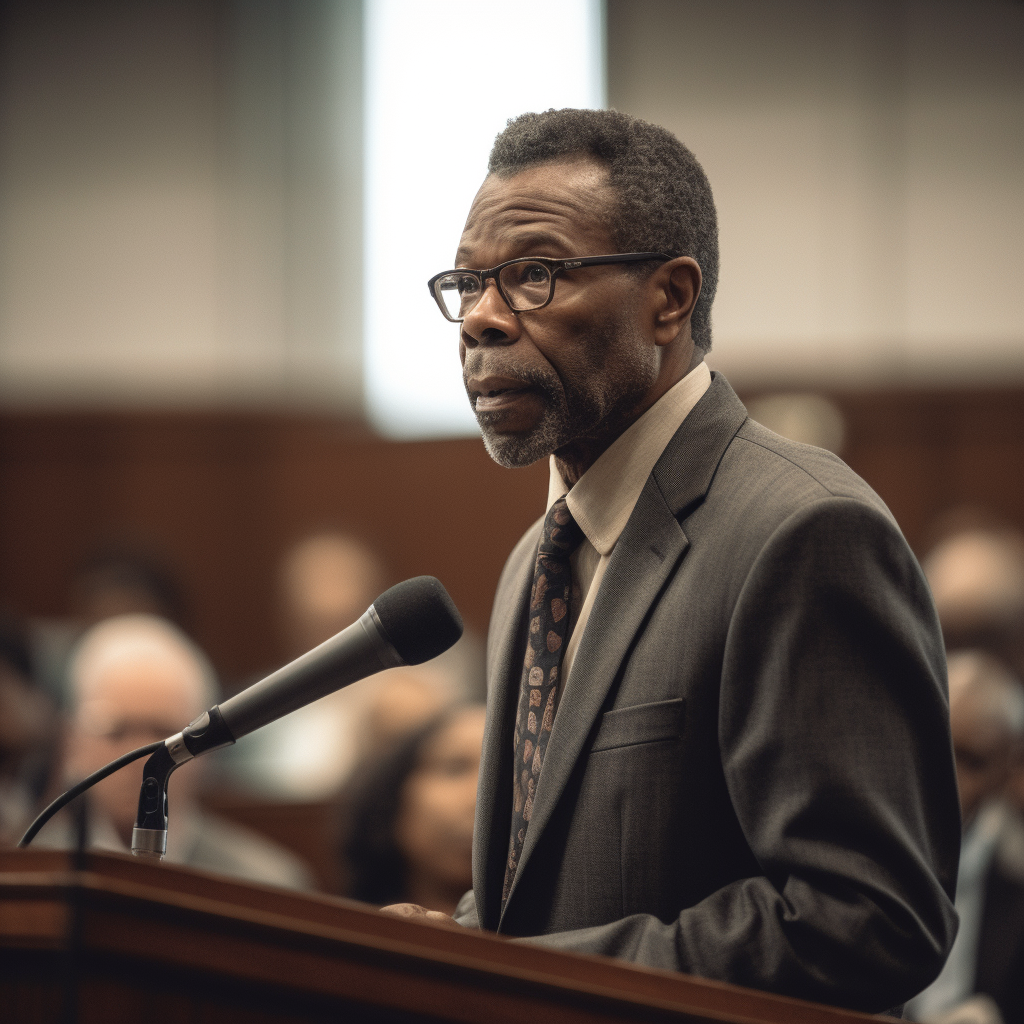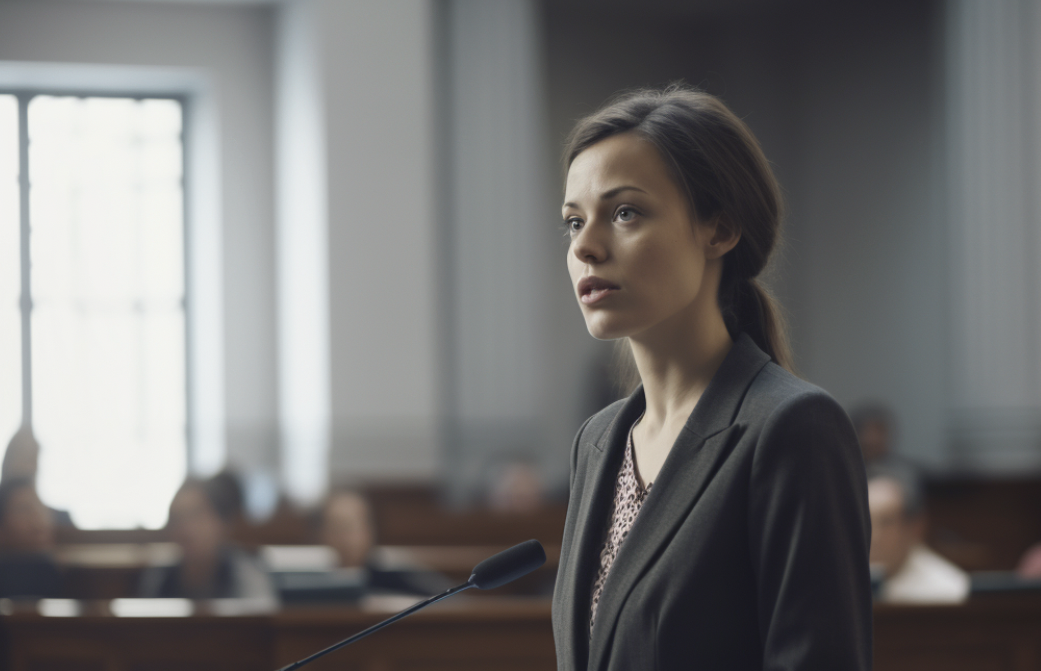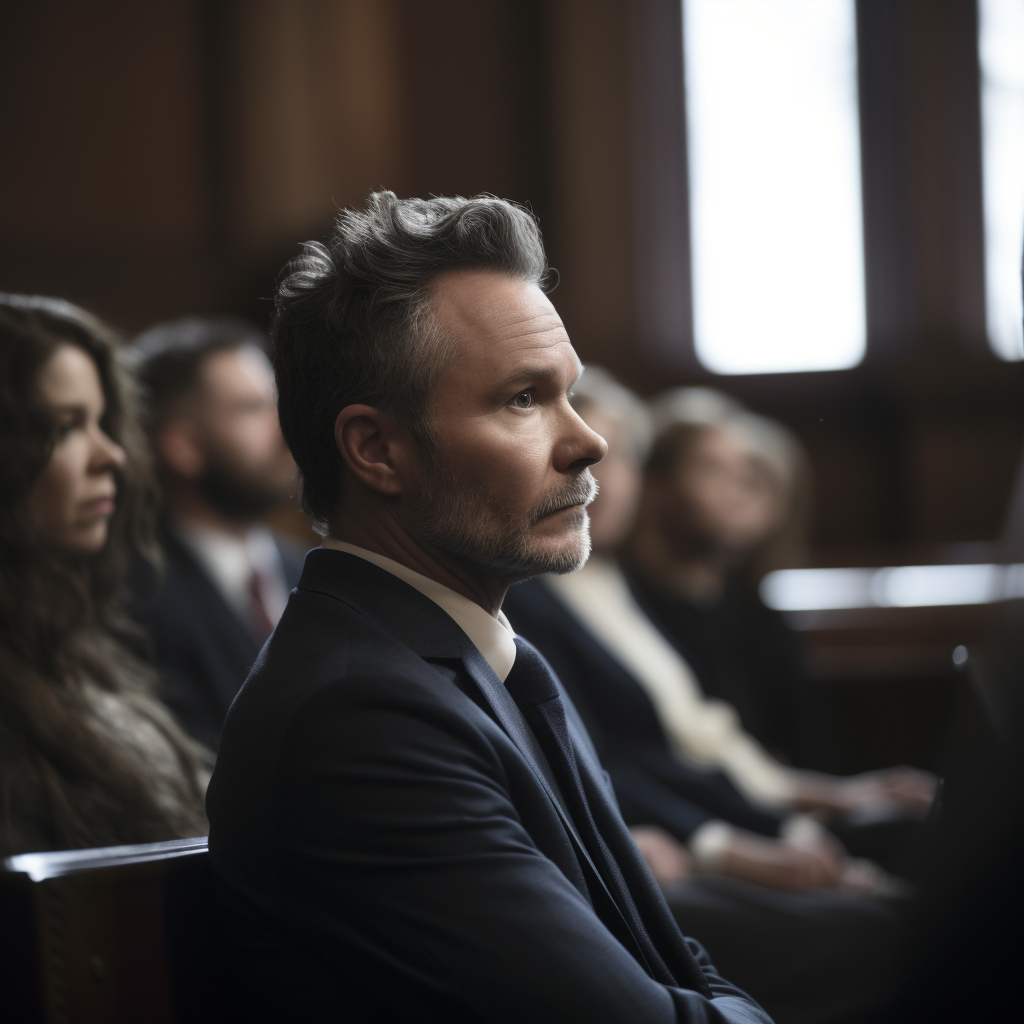Table of Contents
A good trial witness can sway that one juror who is holding out; conversely, a bad witness can destroy your entire case. The difference lies in adequate witness preparation. Preparing your witnesses requires much more than selecting, interviewing, and going over the basics of the lawsuit and court procedures with them. There is a great deal of work that must be invested in both lay and expert witnesses if you wish to make the strongest case possible.
Voldz Law assists New York personal injury attorneys by helping them prepare witnesses for trials and depositions. Find out how we can serve your firm and your clients.
What Is the Importance of Witnesses In a Case?
Accident reports, medical records, and other physical evidence can only go so far in persuading a jury to sympathize with and award damages to your personal injury client. Witnesses tell the actual stories of accidents and injuries, how they happened, and what impact they have on the victims. Importantly, not all witnesses are of equal value to your case. An ineffective witness can be a distraction at best and detrimental to your litigation at worst. Our NYC personal injury trial attorney can explain how to separate the two so you can select the right witness.
Lay Witness vs. Expert Witness
Lay (non-expert) and expert witnesses play distinct and equally important roles in trials:
- Non-expert witnesses: Under Rule 6.07 lay witnesses can only testify based on their personal knowledge, derived from the use of their senses. Their testimony is not based on specialized or technical knowledge (which is what the expert witness testifies to). A lay witness may offer an opinion if it is rationally based on their perception, falls within the ambit of common experience or that of the witness’, and helps the court understand the relevant facts of the lawsuit.
- Expert witnesses: These are individuals with specialized knowledge who explain concepts or interpret facts according to their education and experience in a particular field. Put another way, a lay witness (such as a truck driver) would probably not be competent to discuss the mechanics and technical aspects of a truck accident (which an accident reconstruction expert would be able to do).

Witness Selection: What To Keep In Mind
In choosing your witnesses, you should bear in mind two broad considerations: New York City court rules concerning witness selection and more practical guidelines to apply to your case.
New York Court Rules govern a wide variety of witness matters, including:
- Who can be a witness in a personal injury lawsuit: This is known as witness competency. Rule 6.01 states that anyone is competent to give witness testimony except for those the court determines to lack legal or intellectual capacity. In other words, individuals are presumed to be capable of being a witness unless they are deemed incapable to do so due to reasons like age or a mental condition.
- Types of witnesses selected: There is a stark difference between a lay or non-expert witness and an expert witness. You should carefully select witnesses who can provide credible and relevant testimony to establish your case.
- Cross-examination and leading questions: Rule 6.06 dictates that cross-examination of a witness must usually be limited to either the subject of the witness’s direct examination or questions of credibility. However, the courts have discretion to broaden this in certain cases. Leading questions are generally not allowed except in limited situations and cross-examination.
Apart from the court rules, there are practical decisions to make concerning your witness, such as:
- How does this witness help the injury case? Ultimately, the plaintiff must establish each element of a personal injury lawsuit (e.g. breach of a duty of care) to prevail. An eyewitness who saw the defendant run a red light and hurt a pedestrian at a crossing could serve this purpose. Your witness can also help refute testimony from the opposing party that undermines your client’s arguments.
- Can this witness harm the case? While it is natural to focus heavily on how a witness can aid your case, it is equally important (and perhaps more so) to think about how they can harm it. A poorly prepared, unreliable, untrustworthy witness can undo any progress you make and seriously jeopardize your lawsuit.
- How much time do you have to prepare the witness? If your trial or deposition is not for several days or weeks, you will likely have enough time to prepare your witnesses. But do not become complacent with the time frame. Take advantage of the opportunity you have now to get your witnesses ready to testify.
- How much preparation does the witness need from the legal team? NYC personal injury trial lawyers will need to discuss the basic facts of the case and the subject of the testimony with your witness. Practicing direct and cross-examinations can help uncover weaknesses and allow you time to correct them.
- Does the witness need an interpreter? Rule 6.04 requires the court to appoint an interpreter when necessary for a witness to understand questions and communicate answers to them. If English is not your witness’s first language, make use of this rule.
- General temperament of the witness: Ideally, you do not want someone who is easily irritable, noticeably angry at the opposing party or their lawyers, or unable to control their emotions. Opposing counsel will exploit your witness’s poor temperament and use it to damage your case. If you are unable to find a better witness, consider working with them to mitigate potential concerns.
Witness Preparation vs. Witness Coaching
Witness coaching is unethical, but the line between witness coaching and proper witness preparation is thin. The American Bar Association has compiled a list of do’s and don’t’s to help practitioners avoid crossing that line.
Do
- Tell your witness that they will be testifying under oath
- Notify your witness that telling the truth may include truthfully answering, “I do not recall”
- Discuss case procedure and strategy with your witness
- Ask about the testimony and recollection the witness will likely offer
- Identify testimony from other witnesses and what your witness’ version of those recollected events and facts are
- Review documents with the witness
- Refresh a witness’ recollection of the facts
- Identify potential lines of questioning and cross-examination
- Suggest certain words or phrases to clarify what the witness is trying to say
Don’t
- Instruct your witness which answers to give to expected questions
- Replace whatever the witness’ answer would be with something of your choosing
- Counsel or assist the witness to falsely testify
- Improperly induce the witness to either testify or refuse to testify
How To Prepare a Lay Witness
Witness prep is essential to help a lay witness clearly convey relevant facts, stay firm under cross-examination from the opposing party, and manage their emotions. Here are some tips for preparing your lay witnesses in New York:
- Listen to the witness’s story: Ask your witness to explain everything from start to finish regarding their knowledge of the accident, including the events leading up to it and the aftermath.
- Note the witness’ concerns and any gaps in their story: If the witness expresses concerns about what they might say in court or a deposition, make a note to address these. Also, take note of gaps or inconsistencies so you are able to seek clarification for both.
- Assess witness credibility: Do not neglect independent investigation into the witness’ background. Consider any potential biases or motivations that might influence the witness’ testimony.
- Discuss your overall assessment with the witness: If you believe the witness will prove valuable to the case, work on gaps, inconsistencies, and other shortcomings by preparing (but not coaching) them. Otherwise, politely inform them that you will not need their testimony.
- Explain the elements of your case and what the witness can help prove: Do not expect your witness to necessarily be able to prove every element or key fact; instead, focus on and develop what they can prove.
- Explain the process of testifying: Let the witness know how important their testimony is, the steps involved in direct and cross-examination, which objections to expect and how to handle them, the consequences of perjury, what will help jurors, and more.
- Explain leading and non-leading questions: The witness should understand the limits of leading questions and what they can and cannot be asked so they can better anticipate how direct and cross-examinations will go.
- Walk them through the relevant exhibits: Opposing counsel might ask questions on cross-examination about the topics raised during direct examination, and the witness must truthfully answer. Under Rule 6.08, the opposing counsel has the right to inspect anything used to refresh the witness’s memory, so the witness should be ready for this.
- Discuss other concerns: For instance, when an objection has been made, the witness needs to cease testifying until a ruling is given on the objection. You should instruct the witness about relevance, hearsay, and when to invoke attorney-client confidentiality (or, more likely, when the witness’s attorney will invoke it) so they do not inadvertently harm your case.
- Check in with the witness: Encourage and answer questions, assuage their fears and concerns, and generally check with them to see if they are doing well and feel prepared for the trial or deposition.
How To Prepare an Expert Witness
These are some additional points to keep in mind for expert witness preparation in New York:
- Review the expert witness’ qualifications, credentials, and prior testimony history: You must be prepared to qualify the individual as an expert, so have ample knowledge of their background.
- Discuss the expert’s role with them and highlight the specific issues they will be testifying about: Make sure the witness understands the pertinent details of the case and how their testimony will prove valuable to the jury.
- Discuss any potential biases, conflicts of interest, and fees upfront: Opposing counsel could use all of these as an attempt to undermine the credibility of your expert, so prepare yourself and your expert for how to best address these points.
- Provide all relevant information: The expert cannot give an adequate opinion without understanding the case materials, pleadings, and relevant exhibits such as medical records.
- Explain the process of testifying, potential questions, and the importance of exhibits: Discuss direct and cross-examination processes, which questions the opposing counsel may ask, potential objections and how to handle them, and the role that exhibits play for all parties in the lawsuit.
- Maintain regular contact with the witness: Help reassure the witness and address any concerns they may have; make sure they know the time, date, and location of the trial or deposition; and ensure they arrive early.
- Minimize the risk of an appeal: Know the exact questions you need to ask your expert, in the appropriate language, to help minimize the chances of appealable issues based on their testimony.
Do I Need to Conduct Mock Trials With Witnesses?
Conducting a mock trial with lay and expert witnesses can help the attorney identify and refine weaknesses in the testimony and in trial preparation and strategy. The lawyer can take what is learned from the mock trial and adjust accordingly by revising the witness’s questions or even by securing new or additional witnesses.
Even by walking the witness to and through NYC courtroom procedures, you can ease their mind and help them better understand what to expect. The mock trial largely serves the same purpose as a court walk-through, so the witness at least has some idea of how the trial or deposition is likely to proceed.
Witness Preparation Checklist: What All Witnesses Must Know
Our firm goes to great lengths to prepare witnesses for trial. All witnesses must know the following about the testimony they are about to give:
- Always tell the truth: Lying in court not only does severe damage to a client’s case but subjects the witness to perjury charges.
- Listen fully to the question asked: At no point should a witness answer questions they do not fully understand, and if needed, they should ask the attorney or judge to repeat the question.
- Be honest if you don’t remember something: It is okay if the witness does not know something. It is far better to be honest about this than to speculate or, worse, lie.
- Answer with words: Gestures, nods, shakes of the head, and facial expressions do not make their way into the court record, and therefore, will not serve any purpose in the event of an appeal. Words get recorded, so witnesses must always answer with words.
- Do not interrupt the counsel or the judge: The attorneys have the right to object and make their arguments, so the witness must pause their testimony and wait until they are told to resume. Likewise, never interrupt the judge.
- Do not make jokes: Personal injury trials are serious matters, often involving devastating injuries and significant financial and personal losses. Making jokes indicates that a witness does not treat the case with the gravity it deserves.
- Pause, wherever necessary: If the witness needs to momentarily stop to gather their thoughts, encourage them to do so. Rushing through testimony can leave key details out or get them wrongly expressed.
- Answer the specific question asked: Make sure the witness stays focused on the question asked. Straying beyond this will invite an objection that could cause the witness to lose focus.
- Do not volunteer information: Volunteering information risks saying something that the opposing counsel will use against the witness or the plaintiff, so it should be avoided.
- Do not agree to a guess: As a plaintiff-attorney, you should ask your witness not to make any guesses and decline if asked to do so.
- Do not argue: Arguing with counsel or the judge will only hurt the witness’ testimony and the plaintiff’s case.
- Review all exhibits thoroughly before answering: If an attorney hands you an exhibit to review, take the time to do so before giving an answer.
- Be consistent with your answers: By preparing ahead of time, reviewing exhibits, and working with the plaintiff’s attorney, the chances of giving inconsistent answers will be minimal.
- Truth, credibility, succinct and clear answers, following the court’s instructions and the judge’s discretion, and proper behavior and attire are additional key points that should be impressed upon the witness.
Witness Preparation: FAQs
Can You Have a Trial Without Witnesses?
It is very unusual to have a trial without witnesses. Jurors may infer that the plaintiff has poor arguments and was unable to find anyone who could testify on their behalf. In any event, efforts should be made to secure strong, reliable, and useful witnesses.
Which Kind Of Psychologist Would Be Consulted In Jury Selection and Witness Preparation?
Typically, a forensic psychologist would be consulted in jury selection and witness preparation. We can assist with this process.
Why Are Witness Statements Important?
Attorneys should encourage witnesses to memorialize everything they observed or know about a personal injury case as soon as they can. Memories fade, details become obscured, and information may get lost. Statements can be used to refresh a witness’s memory later.
What Happens If a Witness Refuses To Testify?
An attorney may subpoena a witness to appear in court and testify if necessary. This is not the ideal situation, so a careful legal practitioner will first exhaust all alternative, persuasive steps to elicit testimony before taking this step.
Can Witnesses Watch the Trial?
Generally, the witness cannot watch the trial. An NYC court may exclude a witness from the courtroom before the time that the witness is expected to testify in that proceeding.
Can a Passenger Be a Witness In a Car Accident?
A car passenger generally can be a witness at trial, but the witness should be vetted for their credibility, consistency, and character. Passengers who have a financial stake in the outcome of the plaintiff’s lawsuit should especially be scrutinized prior to the lawyer agreeing to have them testify.
Interested In Learning More About Witness Preparation? Let’s Connect To Discuss Referral Opportunities
Gennady Voldz, founder and owner of Voldz Law, handles all aspects of trial preparation and trial presentation. His hard work has secured numerous jury verdicts and settlements, helping personal injury clients recover millions of dollars. Gennady’s experience has taught him profound lessons about the value of witness testimony and how to best prepare witnesses for the rigors of depositions and trials. To partner with Voldz Law for your New York personal injury trial, contact our office today.




